The Right President at the Right Time
We canvassed a wide circle of Purchase College community members to gather impressions of President Peña, hopes for her tenure, and predictions of where Purchase will be in the future. They all agree, Peña is a perfect match for Purchase College.
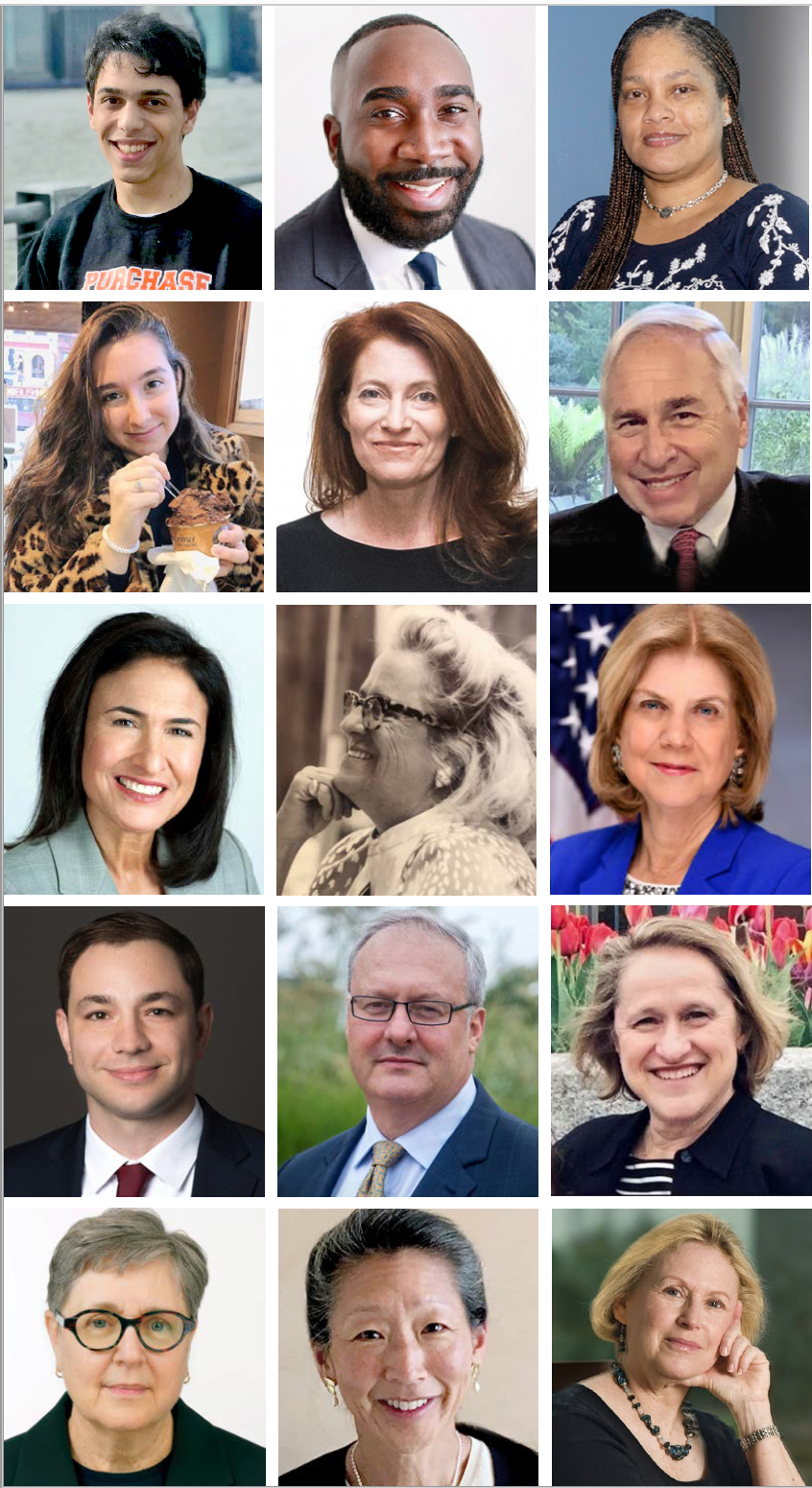
Here’s a sample of what they had to say. (See list of panelists here.)
PURCHASE Magazine: What is your impression of Purchase College’s new president Milly Peña?

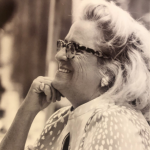
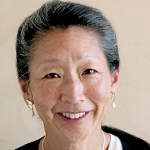
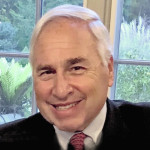
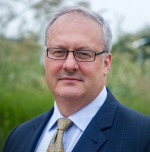


PM: What do you see as her strengths that she brings to leading Purchase into its next phase?
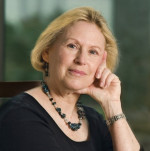
Marvin: Her strengths are her vision, her energy, her willingness to listen, and her desire to bring everyone to the table.
Glazer: Milly is a fierce intellect, but she has a wonderful personality and a way about her that is inclusive when it comes to dealing with all of the people on campus, whether it be students, faculty, staff, or administrators. She has a very nice touch and great leadership skills.
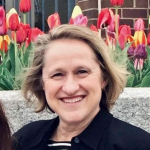
Rush: Milly strikes me as sincere, grounded, caring and poised. I believe Milly has an understanding of what makes Purchase special and is determined to leverage its strengths to make Purchase a better place for its students, faculty, and the community at large. She is not content to mark time while she is here, but to lead the institution forward.

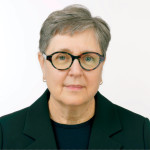
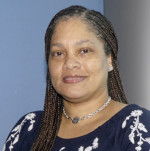
PM: As a student, where do you hope to see President Peña focus her priorities in the next year? What is most important for her to address?
Dieguez: I hope to see President Peña focus on our campus diversity. Purchase’s student body is very diverse; and as students, we desire to see the same diversity within the faculty as well as the material being taught to us. Hire faculty from all different types of backgrounds and create classes that not only raise awareness of the racial injustices occurring in our nation, but how we, as students, can apply what we learn in class to the jobs and environments we will be in post-graduation.
Astor: This year it is most important for President Peña to address the issues surrounding COVID and student safety. I would also like to see Purchase hire a more diverse faculty and give more scholarships to students, as well as address issues regarding racial and other biases in the community.
PM: Where do you hope to see Purchase College under her leadership in the next two years? And in ten years?
Glazer: The first thing that must be done is to manage through this crisis environment as we bring the campus back to the place where it was before the pandemic—poised for new leadership and poised to move forward both academically and culturally. As she repairs the damage from the coronavirus, she will also undertake all of those very productive and interesting ways to move Purchase forward that she came to us thinking about. We may have enrollment challenges, but we also have tremendous assets, a terrific academic environment, a very inclusive and open welcoming campus, and we offer a great education within a state university system that is more affordable.
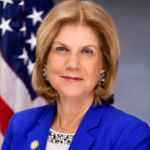
contribute to cultivation of public discourse and democratic ideals. In addition, I would like to see Purchase College continue to lead in the performing and visual arts, and to share that leadership with a broader Westchester community.
Imperial: Now more than ever, the college needs to prepare students for civic responsibility and constructive participation in a democracy where differences are valued and respected. I look forward to Purchase College being designated a Hispanic- Serving Institution this year, which will hopefully provide greater resources for building the institutional capacity to increase student access, retention, and graduation.

Peluso: I hope to see Milly sustain and expand our incredible student success efforts. We’ve made great strides in the past twenty years increasing our retention and graduation rates and I believe we can push them even higher. As an alumna and foundation board member, I believe in Milly’s leadership and look forward to working to fulfill the college’s promises to provide access, to support student success, and to dream big without ever compromising who we are as a college.
Werlinich: From the Foundation point of view, President Peña’s development background is a godsend. The next big thing will be to launch a capital campaign. With her record of success, her willingness to talk to donors, and her commitment to a prospective campaign as a critical next step, I’m truly excited to move forward working alongside her.
Rush: I hope to see Milly raise the visibility of Purchase nationally and internationally. I hope also to see her expand interdisciplinary relationships and opportunities across departments and programs, ensure the college’s financial health by continuing to hold down costs, develop donors and pursue available grants, grow internationalization of student learning experiences, and consider responsibility of producing informed, engaged citizens.
PM: President Peña would like Purchase College to be known as a reliable partner and resource within the wider community. How would you like to see Purchase College accomplish that goal? What kind of impact do you see Purchase College having on organizations and populations nearby?
Marvin: Under her leadership, I would love to see the college take a large role in the outside community as a beacon, as a model for inclusive interaction, reinforcing its position as a community of peers who respect and value each other all while encouraging open dialogue. Going forward, I would like to see the college become more involved in the issues facing Westchester County, such as food insufficiency and the plight of the homeless.
Collymore: There are many organizations/ nonprofits who support underrepresented student populations within the arts at the junior high and high school level. I believe it would be in the college’s best interest to explore and create a variety of sustainable pipeline programs with such organizations or communities, whether they are local, national, or international.
Mayer: The immediate surroundings of Purchase College are quite well-resourced, but the broader community, particularly the Village of Port Chester, and the cities of New Rochelle, White Plains, and Yonkers have great needs. The college can partner with all of these communities to provide programming, space, and educational and performing partnerships. I’d like to see increased civic participation by Purchase College students in the community of Westchester, and the opportunity for greater cross-fertilization between community and college leadership, both student and professional.
Roth: I would like to see Purchase partner with other corporations and institutions in Westchester so that we can become a full partner in the community. With its diverse and inclusive student body, Purchase is the perfect partner for the
corporations nearby that are struggling to overcome their own legacies of systemic racism in hiring and promotion. We need to reach out and see how we can get involved in their efforts to address their prior shortcomings.

Pearson: Milly brings a history personally of working in administrative roles where expanding the influence civically of the institution is fundamentally what she’s been a part of. She knows readily its benefits educationally for our students and for the lifelong dedication to those values as alumni.
Astor: It would be great for Purchase to have more connections with local job and internship opportunities in Westchester, helping the students gain employment while in school.
Dieguez: I commute from Yonkers, which is a very diverse and vibrant city approximately 25 minutes from campus. Cities such as Yonkers and White Plains are home to many non-profit organizations, permitting students the opportunity to volunteer and give back to their community. It would be very beneficial for Purchase to connect with these non-profit organizations and bring them onto campus, giving students direct access to these work opportunities. In doing so, students will not only garner impressive skills and work ethics, but they can create a connection to these communities, especially to prospective students living in these nearby cities.
Fitzpatrick: The visual arts are a key tool through which learners can see through different lenses atop new platforms, and academic museums, like the Neuberger Museum of Art, are critical partners in that work.
PM: President Peña has spoken about sustainability and social justice issues as examples of overarching themes she would like to see Purchase explore as a college. What are the big issues or themes you hope to see Purchase College face head on? What would you like to see as outcomes of the process?
Roth: The biggest issue to me remains keeping college available to students of modest means given the continuing erosion of public funds. I am hopeful that we can find new sources of funding that will enable us to continue to make college affordable with grants and scholarships to students. To me, an educated population is one that will embrace issues like sustainability and social justice.
Nightingale: Our campus needs to continue to lead in living green and incorporating the theme of sustainability and being good stewards to our world in all that we do. Social justice, without a doubt, needs to be a top priority of the college. We need to take an equity lens to all that we do and it needs to be woven into the DNA of the institution. Leading in social justice and equity is our path forward.
DeWese: I hope to see Purchase College solidify its position in SUNY and in the larger Westchester, White Plains, and Hudson Valley community as a creative, innovative, and progressive learning environment that recognizes, values, develops, and embraces everyone as equals. The outcomes would be the increase of enrollment and retention of students from underrepresented populations and backgrounds; the increase of the recruitment and retention of staff and faculty from underrepresented populations and backgrounds; and the diversification of staff, faculty, administration, and leadership.
Pearson: Part of what drew Milly to Purchase was an understanding that efforts around those values—social justice, equity, expanding the civic footprint of the institution—were all very strong possibilities. She would not have to struggle to turn the institution 180 degrees in a new direction. It will greatly shape so much of what we’re doing. What’s exciting about Milly is that her ideas advance so much of what’s already here. I think it becomes just another ingredient on the overall creative mix here.
PM: President Peña believes strongly in the value of a liberal arts educational model and how it can play a role in addressing big societal questions through crossing interdisciplinary boundaries and thinking critically and creatively. What do you say to those who doubt the power of a college education as the rising tide that lifts all boats?
Nightingale: Purchase has an incredible track record at delivering an unrivaled experience to a diverse student population including first generation college students. Education remains the most important vehicle for equity.
Imperial: I believe that college education could be the rising tide that lifts all boats—not just yachts or cabin cruisers! As Nelson Mandela said, “Education is the most powerful weapon which you can use to change the world.”
Mayer: There is incredible value in a liberal arts education. A strong liberal arts education helps cultivate important skills, such as writing and critical thinking. It is equally important that a strong liberal arts education cultivates norms and ideals essential for a strong democracy, including tolerance, diversity, and deliberation.
Marvin: As a graduate of a solely liberal arts college, I have reaped its benefits truly every day of my life as it trained my mind to think in ways that were much more expansive and much more thoughtful. For every wonderful STEM person we graduate, we also need the musician and the philosophy major to make the world a thoughtful, balanced home.
Peluso: A college education should be regarded as essential; a right, not a privilege. Since its inception, Purchase has been proudly public and devoted to removing barriers to access and creating opportunity for all who seek it. Milly comes to us with a demonstrated commitment to this ideal. She herself is a living example of a SUNY success story.
Werlinich: There’s undeniable value in a college education, which should be available to everyone. With a liberal arts education, students can graduate and do anything. And when students are exposed to so many ideas, they think more about other people and doing more for others, not just themselves.
Rush: A college education promotes personal growth. A college education is a gateway to learning about people around the world, their cultures, traditions, and their language. It is also a means by which a person can learn skills such as critical thinking, problem solving, decision making, collaboration, communication, time management, and dealing with failure and disappointment; develop independence, self-reliance, initiative, persistence, discipline, responsibility, and agency; and experience and practice generosity, compassion, and understanding. These skills, qualities, and experiences are critical to navigating the workplace as well as life. What greater gift can there be?
The Panelists

PSGA President, History and Anthropology

President, Purchase College Alumni Association
Assistant Director for Advisement and Student Services at Robert F. Wagner Graduate School of Public Service, New York University

Chief Diversity & Affirmative Action Officer
Title IX Coordinator & ADA Compliance Officer

Literature major, Theatre and Performance and Gender Studies minors
Learning Center and Social Media Intern
Varsity Women’s Tennis

Director, Neuberger Museum of Art
Associate Professor of Art History

Chair of the Purchase College Council
Retired Partner of Davis Polk & Wardwell LLC

Purchase College Council
CEO, YWCA White Plains & Central Westchester

Purchase College Council
Mayor of Bronxville and active community servant

New York State Senator, 37th District

Purchase College Council
President and CEO Westhab, Westchester’s largest provider of housing and services for the homeless and largest nonprofit developer of affordable housing.

Provost and Vice President for Academic Affairs

Trustee, Purchase College Foundation
Senior Director, Institutional Giving, University of New Hampshire

Trustee, Purchase College Foundation
Executive Director, Head of Compliance Regulatory Group, Morgan Stanley

Purchase College Council
Retired legislative analyst for New York State Assemblywoman Amy Paulin and active community servant

Chair, Purchase College Foundation Board of Trustees
Werlinich Family Foundation
Editor’s Note: Some responses have been edited for length.